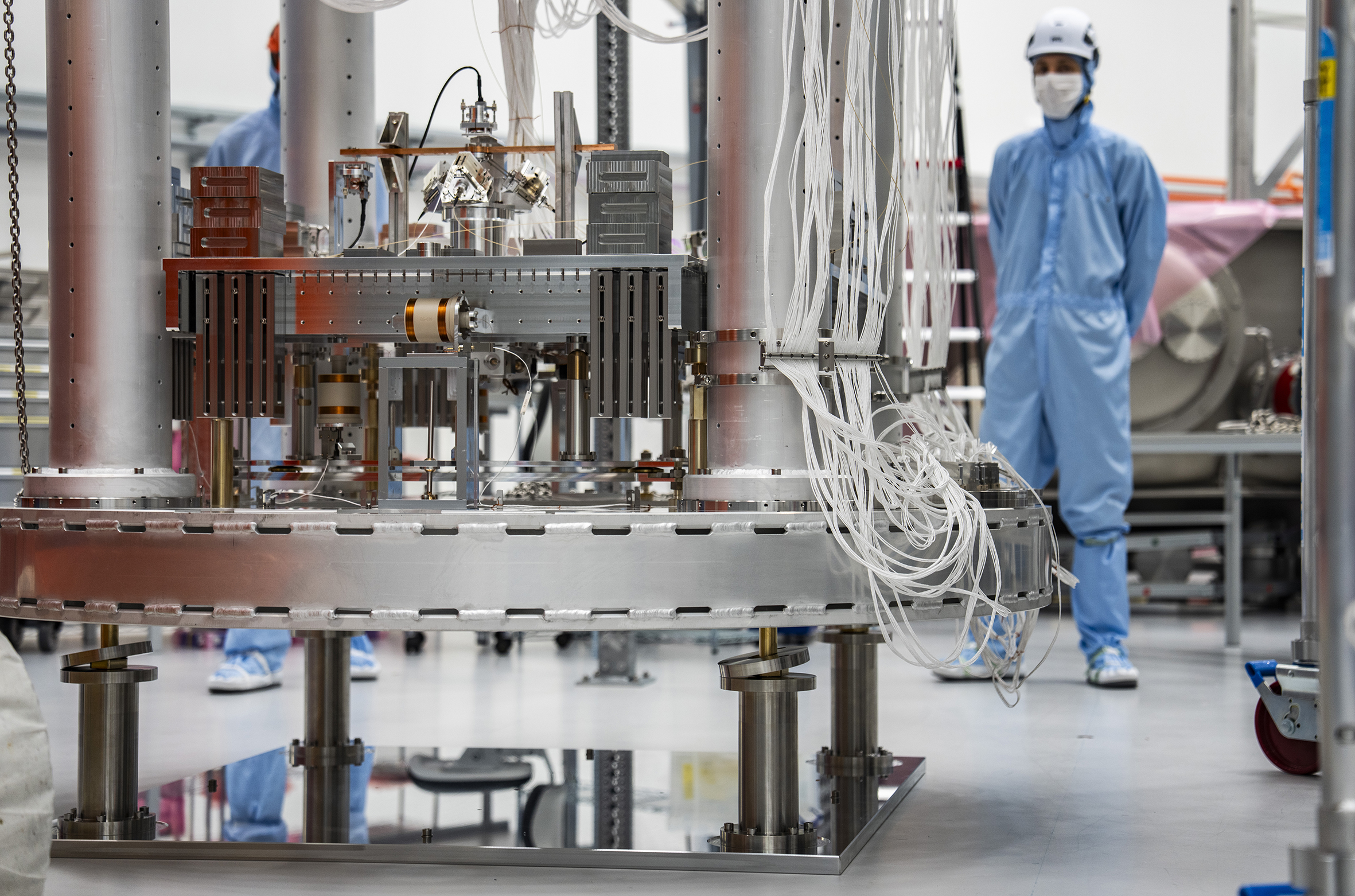A new laboratory in Maastricht will make the technology from the Einstein Telescope research accessible to the business community. Over the coming years, the new ETpathfinder Smart Skills Lab will develop teaching modules that will enable small and medium-sized enterprises (SMEs) in particular to provide further training for their employees.
The Einstein Telescope is a research facility currently under development, designed to detect gravitational waves with unprecedented precision. The project combines numerous key technologies, such as photonics, cryogenics, ultra-high vacuum, and data analysis.
These are not only relevant to science, but also to sectors such as the high-tech industry, construction, installation engineering, and logistics. It is precisely in these sectors that access to the latest technological insights proves difficult. The Smart Skills Lab aims to bridge that gap.
Perfect location
“We are building the teaching programs step by step,” says project leader Prof. Stefan Hild of Maastricht University and Nikhef. “From simple instructional videos and interactive online tools to workshops in our laboratories and cleanroom.”
ETpathfinder, where much of the technology for the Einstein Telescope is being prepared and tested, serves as an experimental learning environment.
In the first year of the project, eleven PhD technology experts will delve into the techniques used. They will then translate this knowledge into usable learning materials, in collaboration with vocational and higher professional education institutions. “We are starting with various technical domains,” says Hild. “This will result in dozens of training courses, which companies can choose from according to their needs.”
Learning platform
The training courses will be made widely available via a digital learning platform. Companies can get started independently or with guidance. Innovation workshops, company visits, and practical exercises make the transfer of knowledge concrete and applicable. This gives SMEs direct access to technologies that were previously mainly available in research institutions.
The project also responds to the growing shortage of technically skilled personnel. By linking practical education to current innovations, the Smart Skills Lab contributes to a future-proof labor market. Moreover, the knowledge and skills acquired will remain valuable regardless of the final location of the Einstein Telescope.
Interreg
The ETpathfinder Smart Skills Lab is receiving more than €2 million from the European Interreg program, which promotes cross-border cooperation. A total of 16 partners are involved. Nikhef is involved in the project through Maastricht University and NWO.
The partners themselves are contributing an equal amount to the project. Thanks to this support, companies in the region can quickly benefit from the technological spin-off of fundamental scientific research.
